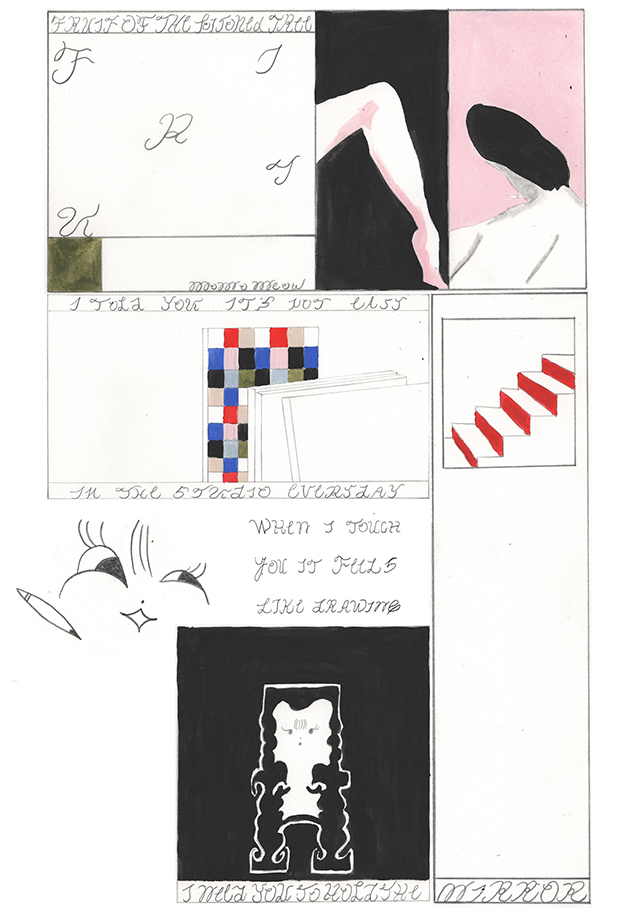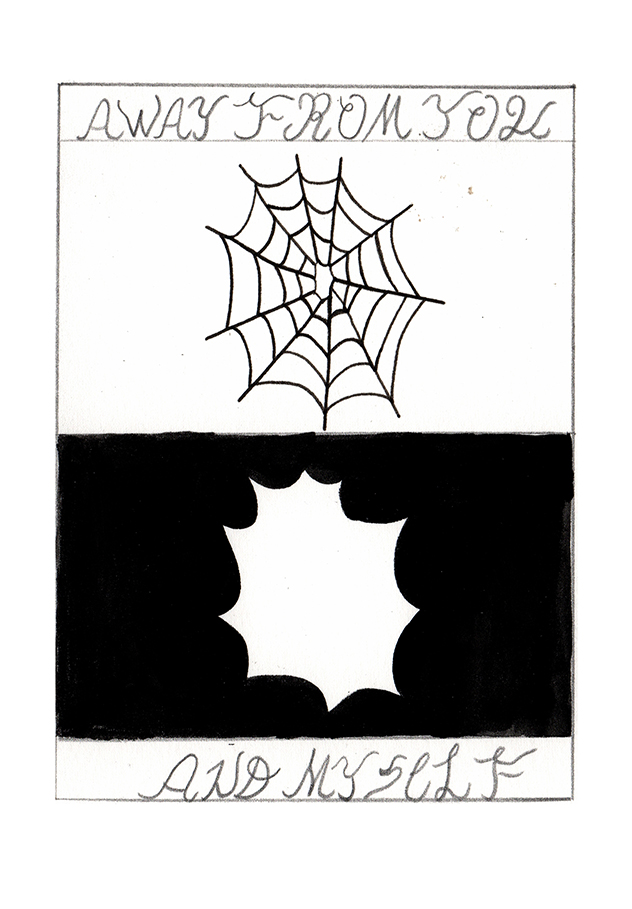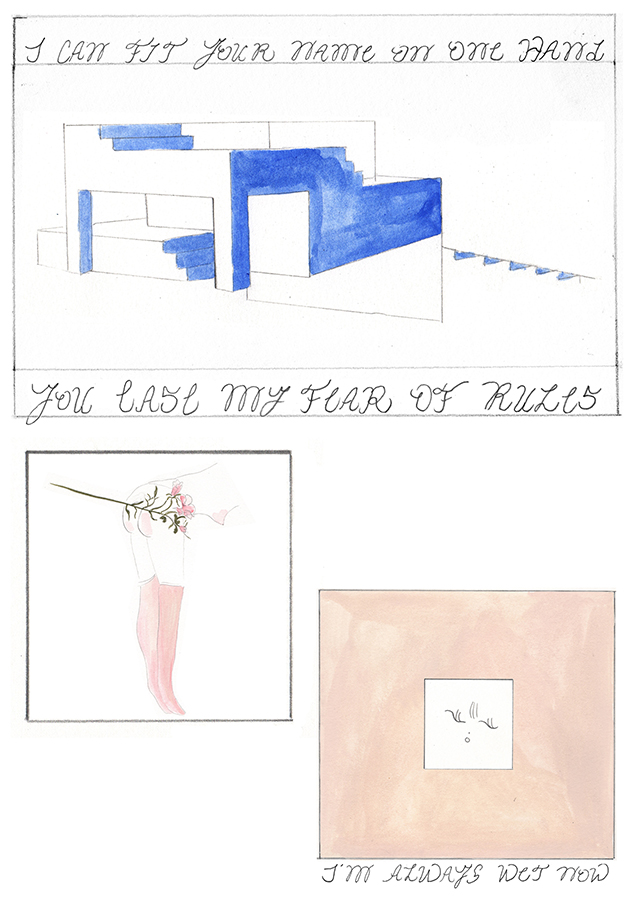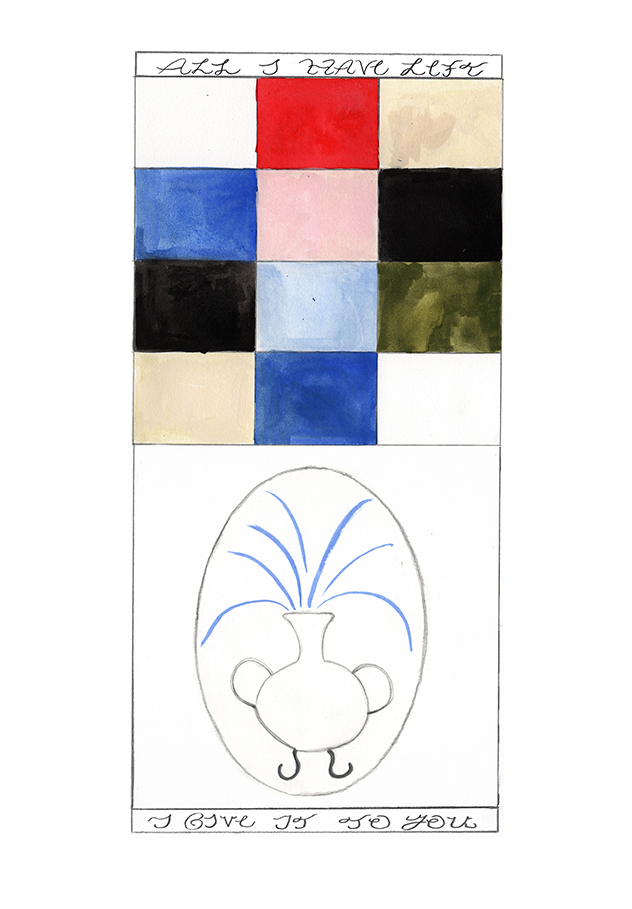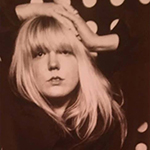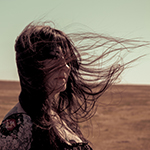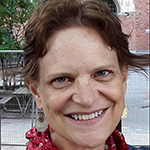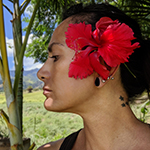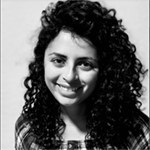Birthday Dinner
What do you do with a ninety-two-year-old, almost-white lady in a quilted, pink bathrobe and tufted, Hello Kitty slippers, who rips into the crossword at seven in the morning, only to cast it aside to take a call from the Pentagon? What do you do when this woman, who happens to be your mother, gestures over her man-sized readers that she needs a legal pad, pronto? What do you do when you bring it to her, and her favorite ballpoint, uncapped, and think you have a minute to stare at the cabinets in her apartment’s tiny kitchen and attend to your heartache while her coffee brews, when you hear her claim in her operatic tenor, “Their climate argument is—what? Completely disregards the phenology. Do you see Freely’s—? Absolutely. I’ll send you my rebuttal—” – and at your back, two pieces of whole grain toast pop up, like a gun shot?
What do you do, as you bring her the plate of toast, buttered and topped with a dollop of honey, and wait while she carves out a Post-it note with twisted fingers and sticks it to a calendar square to keep track of her professional life?
You try to beam as you cry, “Happy birthday, Mother! Happy breakfast!”
“Thank you,” she says, as her wide mouth lunges at the toast, cracking it in half. She looks slightly cross-eyed with exasperation, telling you, “They can’t seem to grasp that hurricanes have changed!”
“Did they have to call so early?”
Her tongue flicks out to lick some butter off her wrist, and she says, as she’s said all your life, “You know, Gloria, if you get up, you get more done.”
How do you answer that, when there is so little in your life to get up for, and the curtain of your day should rise in the evening, anyway? Only, the show has closed after two nights, to catastrophic reviews, which you have explained to her, shucking it off as if your sense of humor were not in ribbons, as if you were not aware that there is some kind of galvanized steel in her spine that makes it impossible to admit defeat, her own or yours, and hoping she might be slightly sympathetic if you accidentally cried a little, which you seem to be doing more and more in secret, but you really don’t want to talk about it because:
Because it was the first good role you’d landed in years—and might be the last, at your age, fifty-one, for God’s sakes, with good scripts for black women as rare as men on the moon, or men in general, so who could say,
Because you had poured your heart into that script, working months over the lines at the overly-pierced playwright’s grimy kitchen table, feeding him your home-made, gluten-free kale bread and honey-coating your suggestions to make it easier on his ego,
Because the overly-pierced playwright threw you over when the curtain dropped, though you had already suspected the low-cut, thirty-something entrepreneuress with the new sandwich shop on the corner of having too much interest in his egg croissant,
Because you can see that your mother’s mind, behind her shadowed smile, has already turned back to rising sea levels, the French response to a U.S. proposal—she is opening up her pen now—and her face with its shimmer of freckles shaken over her nose and her green eyes that gaze up at you—the legacy of an Irish-American mother that insisted on itself so strongly that she was able to pass as white, when it suited—is actually preoccupied and has no radar for your heartbreak.
Her iPad whistles. She remembers, “I’ve got to get dressed,” and pulls herself up on her walker. “Someone is coming at ten, to take my picture.” She rolls her eyes. “An exuberant photographer.”
“For your birthday?”
“For the Times. A piece on my files.” She pulls a face, embarrassed that you might have forgotten. “I told you—”
You remember. “Those old, manila things in the basement?” She is giving the records of her spy years to the Library of Congress. Her sudden celebrity feels like a rock in your chest. “Won’t that blow your cover?”
Her green eyes, shielded by cataracts, are searching your face, suspicious of your meaning. Only in the briefest conversations have you ever alluded to her passing. Maybe she thinks you hold it against her, having absorbed so much of your long-vanished biofather’s Nigerian tones. The most she ever said to you when you were bullied at suburban schools was, “Sticks and stones. Remember who you are.” If you cried, she’d quote, “Rain, rain, go away,” as if you were a cirrus cloud. Or perhaps because she could draw her metaphors only from the climate. Did she ever worry that you would judge her for her racial choice? Or blame her? Do you? No. Well, maybe. Maybe it is too complicated to know ever how to bring up, even to yourself.
“I’m trying to declutter,” she apologizes, following her rolling walker toward the bedroom, pausing in front of the mirror, “like that new Danish philosophy. My papers are in such a mess—”
“They are invaluable,” you cry. This frail old person poking fingers into her thick hair is, after all, a national treasure. “Your papers date from before the war, don’t they?”
She corrects you impatiently, “May ‘43, Athens, to July ‘78, Rocky Mount.”
You are rebuked. Nineteen-seventy-eight? You are doubly rebuked. All that mattered to you that year was a role as a peanut in Willy Wonka, while fifty miles away, your mother was risking her life undercover at a clandestine, right-wing gathering. You feel the granite stone in your heart, blocking some doorway to admiration or remorse. What would rush out, when your whole life seems lived in her shadow? Today she is a year older, but the clock is ticking for you both.
“It’s hard in theater,” you have overheard her say to friends. Sometimes she will explain, “Gloria is supporting herself as a nanny.” There’s a rueful laugh as she adds, “She must be a glutton for punishment.” Her friends have tactfully stopped asking about you, thankful their own daughters have found sensible careers.
Though she would never see it that way, doting on you, not caring what you do with your life. Which is a blessing. In a way. Probably. Isn’t it?
Squinting at the mirror, she pulls a gray strand of hair straight up and lets it drop with a hopeless smile. “I’ll need your help deciding,” she declares. “I have that new apricot jacket I bought on sale, but I thought I’d save that for tonight.”
“What would like to do for your birthday?”
“I thought we should go to the Rathskeller. They have excellent pizza.”
“Wonderful,” you say. What is she thinking? Neither of you likes pizza. You sense there is already an attempt afoot to undermine the dinner. “Can’t you wear the jacket for both,” you ask, “the photograph and the Rathskeller?”
She makes a face as she wheels herself toward her closet, which is the size of your entire Brooklyn apartment. “Clothes get tired,” she tells you.
Your jeans, you consider, must be ready for burial.
Breathing in, as if in a garden, she passes through the rainbow of her silk blouses, then, muffled by tweed, she calls, “I want you to try something.”
“Bring it on.” You are immune to her attempts to remake you.
As you wait, you cannot avoid the wall mirror that has followed her from house to house. You used to look young in this mirror; now you don’t. Your waist is thick, your hair thin. The verdict is in: You will not grow up to be your mother. You are built for character parts, such as exist for women of color, whereas she could have been Kathryn Hepburn’s understudy, with saluki slenderness and stubborn humor. Except she has a horror of acting. She backs out of a room if Charades is even mentioned. Your attraction to the stage is a phase she has been waiting decades to pass, and perhaps she is still waiting, though you’ll never crack the code of her to find out. And you could not bear it if you knew.
She pokes her face around the closet door with a jaunty, blue-and-white print scarf around her neck. “Maybe apricot is rushing the season?”
“It’s going into the 70s today,” you improvise.
“No. High of 65.” She waves something pink on a hanger at you. “Try this.”
Obediently you slip on the boxy silk jacket and button up the frogs. You both study your bulk in the mirror.
“I look like a retired dominatrix,” you say.
She offers with obvious tact, “I rely on foundational support.”
“You mean, like the Ford Foundation?”
She smiles slightly, droops onto the edge of her bed, pale, and admits, “It was probably a mistake to buy it.” She tugs the Liberty scarf from her neck with a gesture like defeat.
“We’ll find something,” you declare, suddenly determined to help. Was it a mistake, you have wondered more than once, for her to have a child? She had to turn down postings because of you. Yet you were not the first nor unexpected, but the replacement for a brother, Raymond, stillborn, seldom mentioned. Sometimes you wonder if you would have grown up in his shadow, too, and you feel yourself resenting his brilliance and his male advantages, until you remember that Baby Raymond never even had a chance.
You get her in and out of three different suit jackets before she finally decides. Then her jewelry box’s brass handles softly click as she tries on necklaces and discards them—too long, too gaudy, too formal.
She opens and closes the drawers, searching. Months tick by.
Rejection seems to have its own pleasures. She tired of her first husband, your father, briefly auditioned a second, then lived decades alone. Since moving into this retirement center, she has gently turned aside the overtures of at least two lonely widowers. Your mother wants ideas, news, facts, not company. Purgatory is a bridge game, she declares, Hades a cocktail hour. Her time is too precious for chit-chat. She finished her law degree while working in a geology lab and was poised for diplomatic service when baby you arrived. Did she ever regret having a girl so unlike herself? Short and stocky? Tornado-haired? So uncontrollable? She tells stories sometimes, full of exasperated affection, of how you would peel down to your chubby nakedness in public, how you mimicked strangers, and brought home fistfuls of wayward toads. If she sounds vexed, your wonderful mother has locked up regrets in a box and thrown away the key. You are, as she has declared on several public occasions, arm around your shoulder like a man, her Greatest Joy. These unexpected meltings of polar ice wrench at your heart, yet the truth is that she forgets to ask about your auditions, your new roles, your various, tedious day jobs. Her talk is riven with “fluorocarbons,” “permaculture,” and “particulate matter.” Climate insecurity claims her full attention—as it should be claiming yours.
At ten minutes to ten, so as not to be late, never to be late, in a navy-blue spring suit with white piping, and two-tone matching pumps, she is sitting up straight in the entrance hall, her lipstick pressed on and off again and her hair like a white shower cap. The suit brings out pink spots on her sunken cheeks, and she feels again for the silver, art-nouveau lily-of-the-valley, with seed pearls, that you have helped pin onto her lapel. It belonged to her mother, the Irish-Catholic rebel from whom only she seems to have descended.
“You look lovely,” you say, excited and invisible, and pick some lint off her sleeve like a little sister waiting for her date.
“Thank you,” she says stiffly. Her eyes are on the sliding entrance doors.
“Mrs. Kelly?” A balding, middle-aged white man in jeans is limping short-legged through the doors. “Mrs. Adeline Kelly?” Black camera bags weigh down one shoulder. There are circles of darkness under his arms, and his brown eyes seem bright with exertion.
Your mother rises on her cane and puts out a twisted hand, blue with veins. Her arm seems too long, as he has already come up too close. Don’t kiss her, you want to warn him, but it’s too late. She recoils stiffly.
His name is Hugo. “Hugo De Groote,” he shouts, spotting the lump of her hearing aid. “Fabulous to meet you! Such an honor!” He glances around to include you in his smile, unaware of her discomfort. There is something foreign in his voice, the stocky build, balding dark hair, kind, dark eyes.
Hugo guides her by the elbow into the side parlor, scouting out where she should sit. At the piano in the corner, his walker parked nearby, one of her lonely admirers is tripping over a Broadway medley.
She makes a show of wincing. “Maybe practice first?” she whispers too loudly.
Hugo settles her onto a bench in front of palm fronds that seem to sprout from her shoulders like wings. She allows Hugo to turn her face, right and left. He touches her if she were a saint.
Watching, you remark, not quite truthfully, “She hates this.”
He turns. “You look after her?”
“I’m the daughter,” you say, in case he thinks you are the hired help. “Gloria.”
He flushes. “You are the aspiring actress!”
Aspiring. It’s your mother’s word. “I act,” you acknowledge.
He is studying you with a heavy-browed earnestness. “Perhaps, you are free for dinner?”
“What?” Is this to compensate for his gaffe? “I’d have to ask my mother,” you say, then explain, “It’s her birthday.”
He brightens, and you both glance over to where she sits straight-backed. One long arm is resting outstretched on the head of her titanium cane. She looks like Washington crossing the Delaware.
“May I take you both out somewhere?” Hugo whispers, as if you were the go-between, “Would she do that?”
“I’ll ask,” you promise.
“Oh, go!” she exclaims in the elevator, chalky in its fluorescence. “You go! You’ll have much more fun. I’ve had too many birthdays. A night on the town! If you don’t mind all that—”
“What?”
“You know. Gallic. Is he married?”
“Mother—.”
She waves a hand, willing to wait out this phase.
You clear away her solo dinner on a tray, and wash the plate as she answers emails on her iPad. “I prefer to stay home,” she confesses as she rolls into her bedroom and starts buttoning on her pajamas. You line up her slippers, and she shuffles into them. “Rachel Maddow’s going to interview the Fiji ambassador.”
You remember suddenly, “Didn’t you have to send off a report or something?”
She hooks on her hearing aide. “Got it out before lunch.” Reaching for her legal pad, she apologizes, as you kiss her, “I don’t know why I don’t have the energy I used to.”
“You’re not ninety anymore,” you remind her and zip up your boots.
“No,” she says. Her eyes, shielded by age, admire you as you wind a yellow scarf around your neck. She smiles sadly. “How is that possible?”
–
You rarely go out on these visits, and the restaurant is unfamiliar and nicer than you expected. Hugo is waiting by the cash register. He has changed into a sleek, burnt-orange jacket and, rising as you enter, smooths his black tie straight, as if the evening matters. He helps you with your chair, surprisingly old-fashioned as he passes you the menu. He pours the sauvignon blanc into your glass, and it occurs to you that his expert twist might come from having worked as a waiter.
“The cod is good,” he suggests.
Your mother would remind everyone that cod is over-fished, one of the greatest threats to marine life.
You say, “That sounds great.”
The cod arrives flat on your plate, already made extinct for you.
“You like to be in plays?” Hugo is starting to extract the bones, looking relaxed now that he thinks things are going well.
You take a breath.
“I have had a career in theater,” you say. “I’ve been acting and directing for thirty years—”
His knife wobbles on the fish’s spine. “Right,” he mumbles, head low. “I’m sorry—”
Suddenly your voice is thick with a sob. “Me, too,” you say, massaging your throat. “Why am I not an accountant? It would be so much easier.”
“Theater,” he says, eyebrows merging, a hush in his voice that might be genuine. It seems this is the first time he has considered the subject. “I think it is difficult.”
You nod. “Sisyphus pushing the boulder.”
“But still, you push. You are strong, like your mother.”
“She had advantages I didn’t. Roles for women of color—”
Hugo sends you a strangely admiring, lustrous stare. There is a pause, and you wonder—are you going to talk about the thing that no one wants to talk about, that you understand and yet cannot forgive her for? You wait.
He asks instead, “You have kids?”
“Nope.”
He looks surprised, anxious. “You don’t want?”
“Want has nothing to do with it. To support myself, I used to be a nanny. Twins, a boy and a girl.” You remember your mother, claiming with optimism that the position would help work off your urge for offspring. You admit, “I loved it.”
“But you are not a nanny now?”
“They grew up.” He pours more wine into your glass, careful now, solicitous.
To fill the silence, you ask, “Have you been in the U.S. a while?”
“Seven years, working freelance.” He’s Belgian, he explains, and stayed on after a green card and his divorce from an American he’d met abroad, who’d come back home and then left him for her college roommate. “Our little girl, Mia, she’s six, lives mostly with them. Follow your heart, right?” he says, smiling at the irony. “You’re supposed to do that, yes?”
“It hasn’t worked for me.”
He takes a breath.
“Are you still following it?” you ask.
“Yes.” His jaw squares. Is this a defense or a challenge?
“You must be a good photographer,” you tell him, unnerved now, grasping at straws. “My mother looked relaxed with you. She’s not a relaxed person.”
In the candlelight, his fork trembles. “A spy. Crazy. For a woman, of her generation . . .”
You wait.
Hugo studies you. “You are different.”
Not sure what he means, you say, “My dad was West African.” You pause, then you add what you have rarely told anyone, rarely said aloud. “Sometimes people think I was adopted.”
“But you have her eyes—” He is looking into them, and you are looking back, pleased he has noticed this one resemblance. “She is like a monument, made of marble. And you . . .” You brace yourself for where this is going. “You are a pond,” he decides. “With trees making shadows. And a rowboat.” His hand makes a gesture of slow bobbing, gentle curves and arcs.
“You think?” You are surprised, pleased, almost alarmed.
He looks down at his plate. “She is very intelligent.”
On firmer ground now, you reach for your wine and warm to the subject, your best monologue. “She was raised by a single mother in Baltimore, a hat-maker and hell-raiser. She’s tough, independent, but also respectable. Put herself through college, cleaning law offices. She started to read the memos and got the idea to go to law school. She’s nothing if not practical.”
He glances up, alert to something.
“And she’s good at keeping secrets,” you add.
He is not going to talk about it. He asks, “She got married?”
“Yes. In the late ‘60s. It was brief and crazy. My father, Akin, was a grad student in Boston, in political science, and I guess it was a marriage of minds, but all I remember is a coffee cup flying. After the divorce, Mother took her maiden name, Kelly, but I still had his, Adeyemi – which was kind of strange. She hid her personal life when she was working. No one ever came to the house.” You look at him, see if he’s paying attention. “After her stint with the CIA, she taught at Georgetown, political science, until she was eighty-three. By then, she was consulting on environmental issues. She wrote an analysis three years ago that was ground-breaking. Someone at the Pentagon phones regularly. She specializes in climate and security.”
Hugo’s chin is resting on his clasped hands. “Wow,” he says, gazing at you.
You sit up straight, adjust some pretend glasses, and declare in your mother’s tenor, “They’re disregarding the phenology. I’ll get you a memo on it tonight.”
His laugh tips with delight. He sips his wine and asks, “Can you also sing?”
You pause for a moment.
“I’m not successful.” You feel obliged to say this, to explain, “I’m not like her.” You look at him and start to gulp air.
He reaches across the table and touches your hand. He holds it, his skin warm and merciful.
“You will be,” he says. Perhaps this is a ridiculous remark, but he doesn’t know that. He lifts his glass, which is almost empty. His teeth are wide-spaced and uneven. “It’s her birthday, yes? To Mama. And to you. To you.”
But you cannot raise your glass, though you try. You sit with your hands in your lap, like a child. The moment lingers, and you have a sudden thought: your mother, for all her talk, cannot grasp the climate change of her own personal planet.
“Why can’t we stop time?” you say, your voice breaking a little.
He gives you a minute, and says gently, “My mother, she is eighty-one. She lives with my sister, in Lyon. She worked all her life and now she has Alzheimer’s. She doesn’t know us.” He takes a drink of wine, seeking your eyes. “But your mother—she had a happy life, I think.”
You picture her, stretched out on her bed, in her pink bathrobe and Hello Kitty slippers, hearing aid secured, pen poised, her face pure fox.
“Yes, she is happy,” you say, after a moment.
Hugo is pressing his elbows on the table as he leans in, determined to tell you, “You’re lucky. She doesn’t need help.”
“No.” You sigh. “She’s very independent. An endangered species.”
You wonder if Hugo is a little in love with her. Her life has been a series of successes while yours a string of belly flops. You are ashamed to think you are envious. She faced worse odds, tougher opposition. And, now, she is running out of hours. It is something no one can give her. You, on the other hand. . . . What are you going to do with your remaining time?
There is silence. His eyes are glowing. A chill passes through you as you reach across the table, but you are filled with resolve.
Hugo De Groote’s napkin is soft as you press it to your face, though it reeks of dead fish. He waits for you, not surprised but having nothing else to offer, and his brown eyes—like yours—seem to be filling with the salt water of a sea hell-bent on rising.
Julian Anderson grew up in North Carolina and now lives and works in Ohio. Since debuting in the Southern Review, her fiction has been published widely. A story in the Kenyon Review was awarded a Pushcart. Her first novel, Empire Under Glass, came out with Faber. The Ohio Arts Council has been generous in its support, and she has been a Fellow at both the Sewanee and Bread Loaf writers’ conferences. Besides fiction, she also writes book reviews, which can be found in Rain Taxi and FictionsWritersReview.


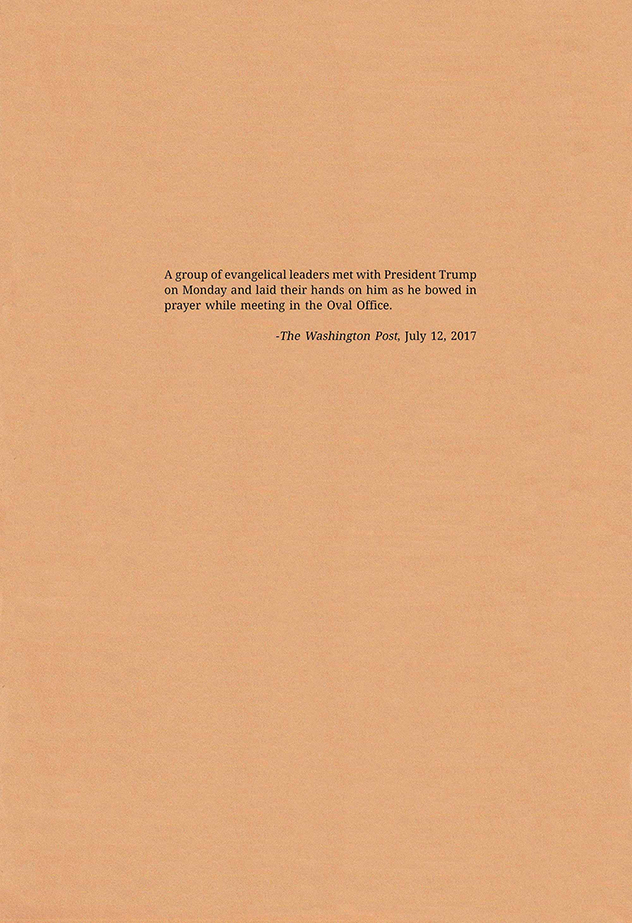
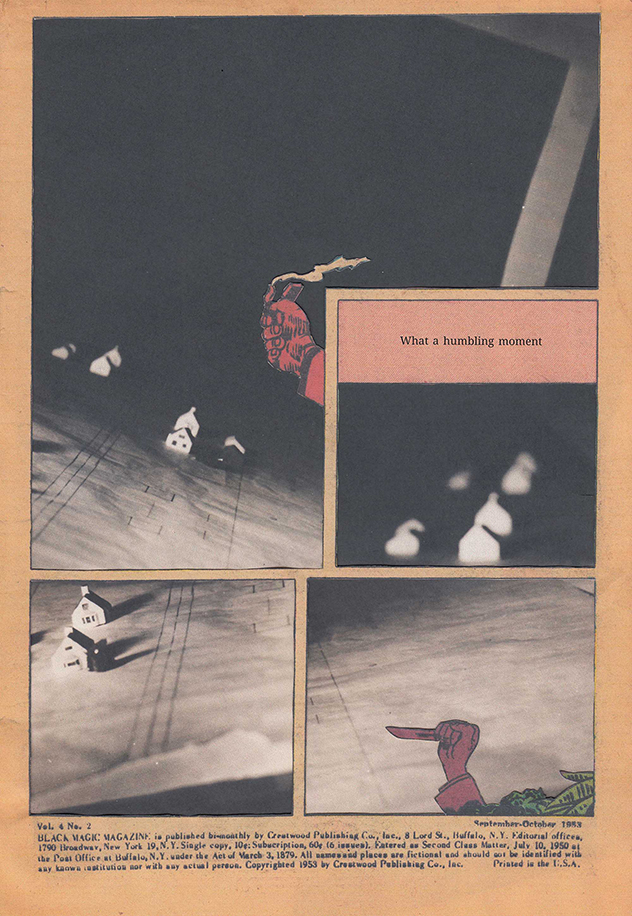
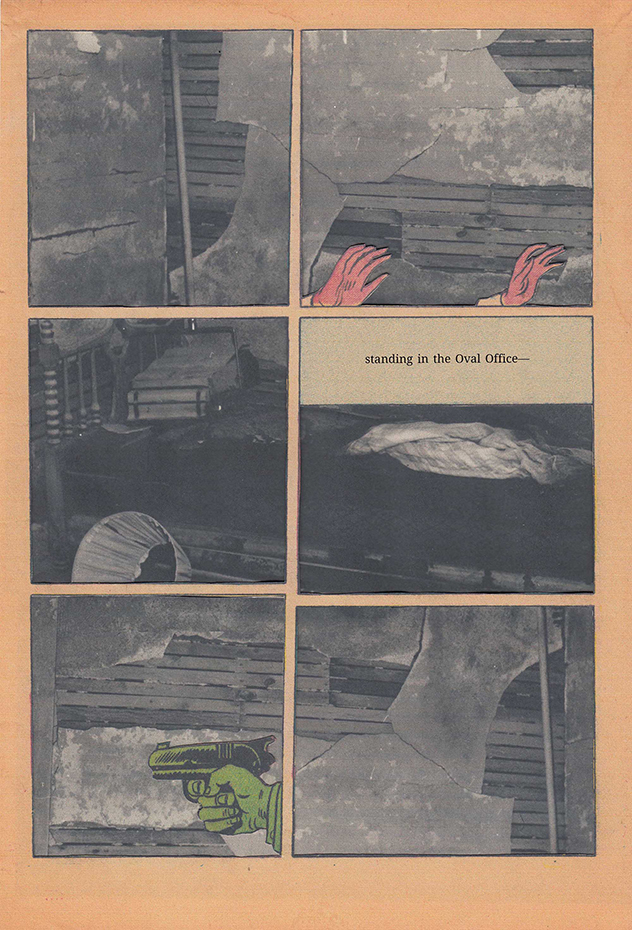
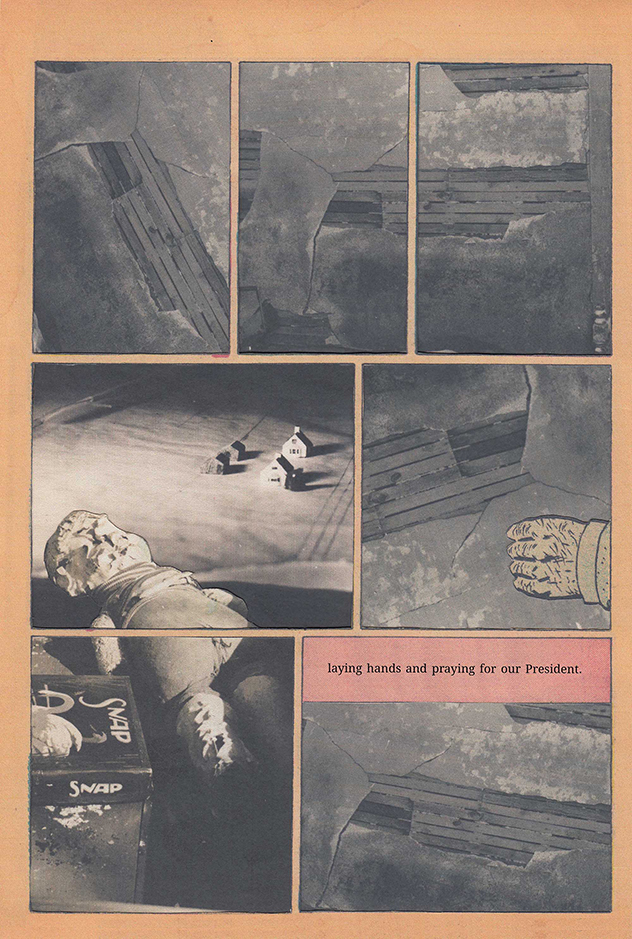
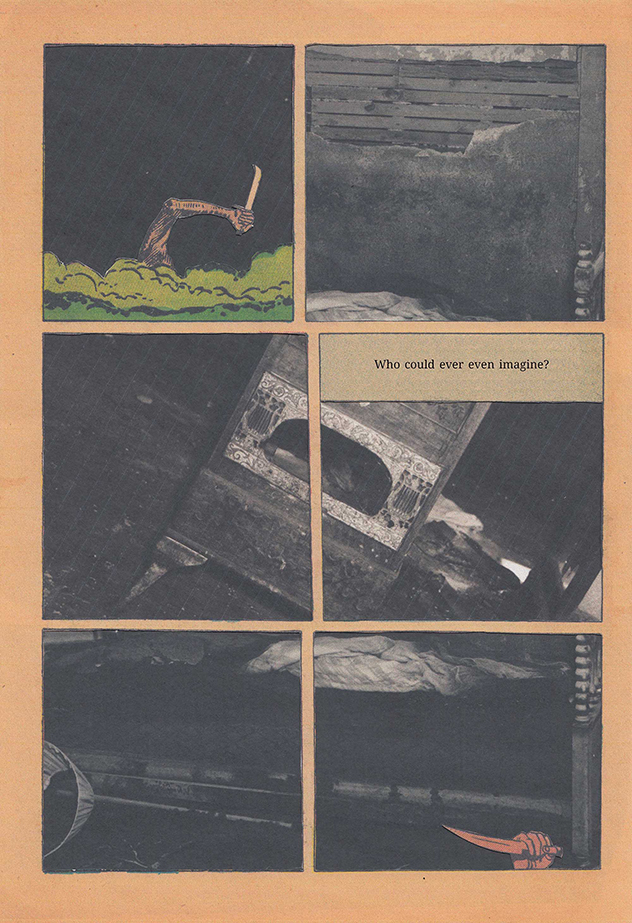
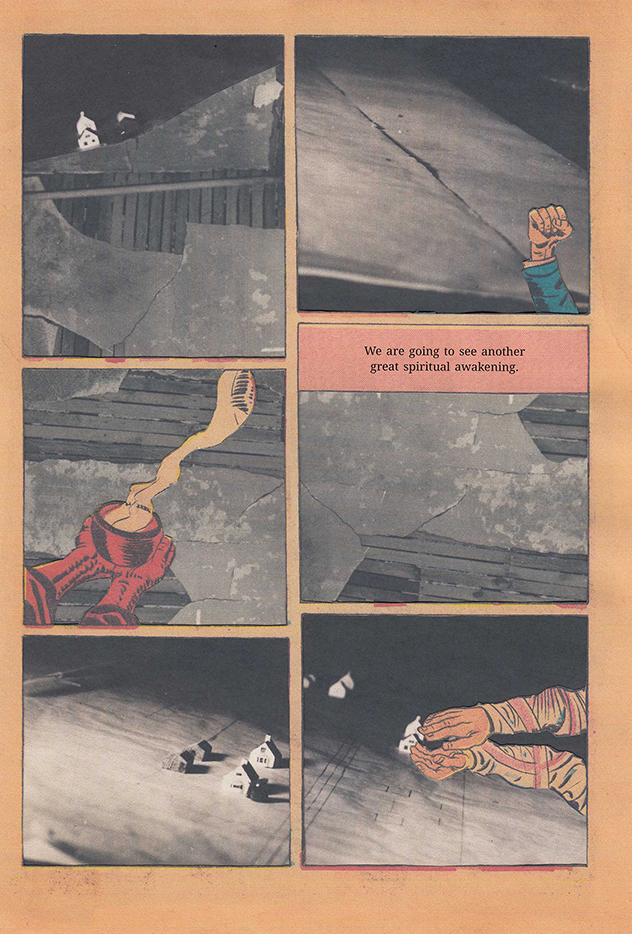
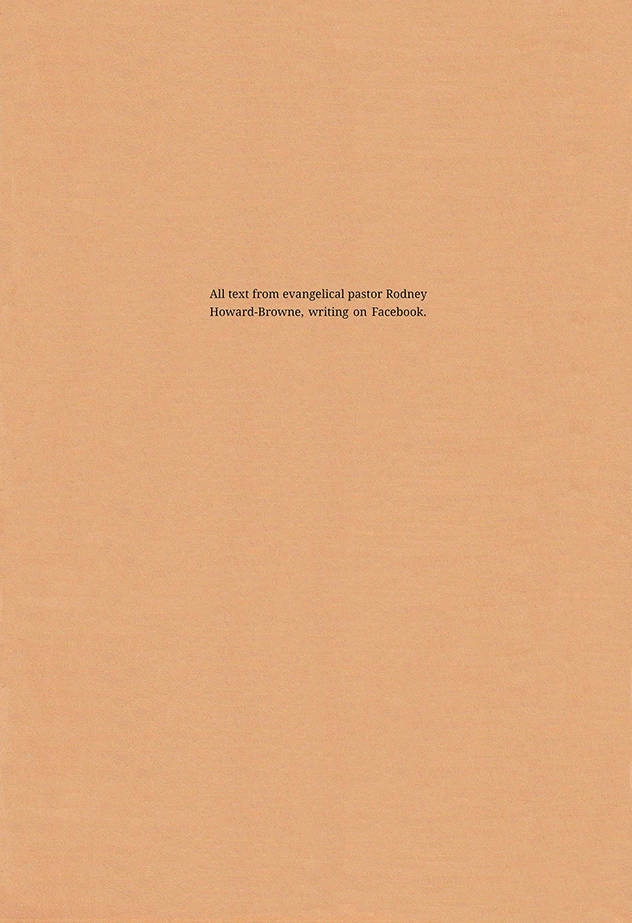
 BACK TO ISSUE
BACK TO ISSUE